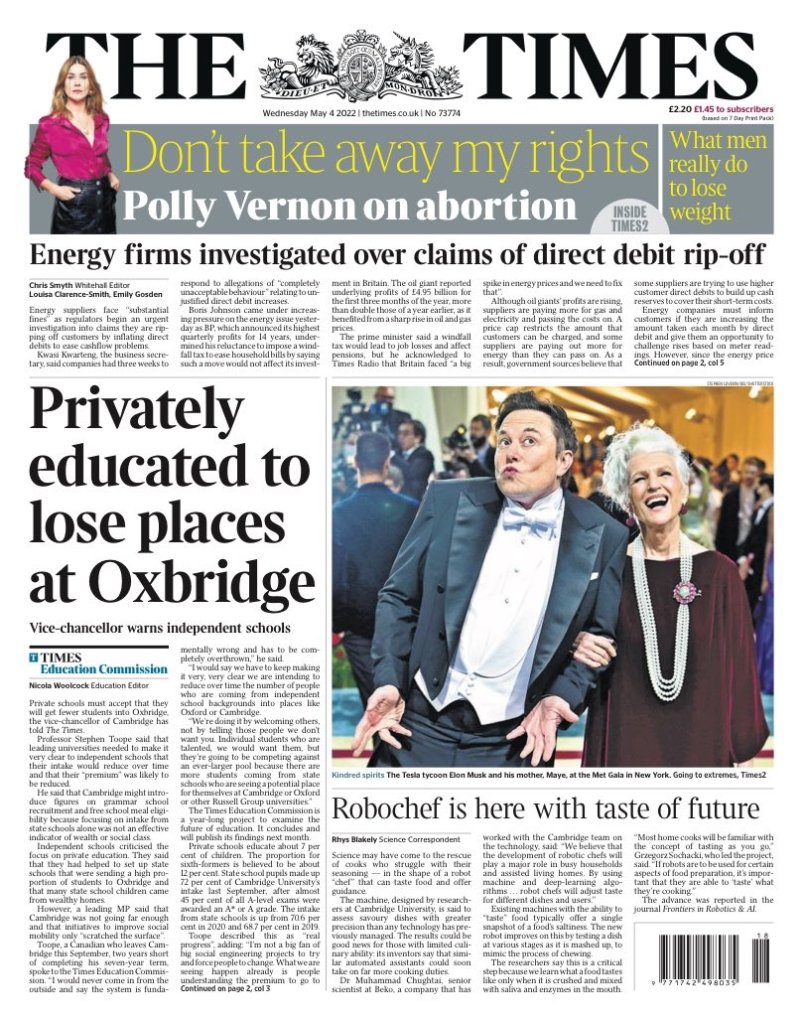Or why state schools actually provide a better education than private schools

This week, the front page of the Times newspaper declared (in horror): “privately educated to lose places at Oxbridge.” As Sam Freedman has subsequently pointed out, the headline here implies that privately educated students have some pre-ordained right to places at our most prestigious and elite universities, and should be up in arms about “normal” state educated children coming along to take away the places that are rightfully theirs.
This sort of stuff makes me furious!
As many of you will know, I am myself privately educated, and I went to Oxford to study English. One of the unresolved questions in my life is whether I would have got my place at Oxford if I had attended the local comprehensive, instead of being a scholarship boy at a competitive, selective, all-boys school with a long-established and well-designed Oxbridge preparation programme. Almost half of my A-level English Literature class in Year 13 successfully gained places at Oxford or Cambridge – it was “expected.” Was it my natural ability, work ethic and enthusiasm for reading and writing that got me in – or was is the advantage of a system loaded to get students from certain schools into certain universities?
I will never know the answer to that question, but one of my personal missions as teacher and Headteacher is to ensure that students from the state schools I work in recognise that they have just as much right to places at our most prestigious universities and top careers as anybody else. I want to make sure that the playing field is levelled wherever possible, so that those without privilege have equal access to the opportunities that those with privilege take for granted.
Over my 25 years working in mixed state comprehensive schools across the East Midlands and the South West, it has also become abundantly clear to me that a state education is actually superior to a private one. Not necessarily in terms of resources – private schools are cash-rich. Mine had two theatres and its own sailing club, for example; most state schools can’t compete with that. But an education in a comprehensive school gives you something that a private school can’t: the understanding of people who come from a different background to you.
At Churchill, we have students from across the whole range of ability, across a wide range of backgrounds, with different needs, family backgrounds, identities, enthusiasms and interests. Some of our students come from rich, privileged backgrounds; some live in poverty. We are a rich, diverse community. I never had that at my school – I had no idea about how people different to me lived their lives. And that meant that, although I knew I lot about Jane Austen, Shakespeare and the Romantic poets, I wasn’t really that well educated – because I didn’t really understand people who weren’t like me. That part of my education didn’t begin until I trained as a teacher, age 22, in a deprived area of north Nottinghamshire, in a state comprehensive school.
And, more than that, the evidence shows that a comprehensive system actually provides a better level of academic preparation. A landmark report by the HEFCE showed that state school students with the same A-level grades as their private school counterparts went on to get better degrees at the end of university. Something about a state school education prepares students to be more successful when they move on to higher education than those from the privileged private sector. Maybe it’s the inclusion and diversity of their education that gives them the edge to be more flexible, to have empathy, and to work better with a greater variety of people?
It is clear to me, having been educated in the private sector and worked for two and a half decades in the state sector, that students get a better all-round education in state schools than they do in private ones. I have three children myself – my youngest is just finishing primary, and my eldest is in Year 11. They all go to state schools. I wouldn’t have it any other way.
I agree. I went to a private church school in Newcastle Upon Tyne for most of my life, but the school categorised me in a particular way which meant I didn’t thrive. Only when I went to a state school sixth form, Lady Manners in Bakewell, did the teachers see and communicate they could see a reason for me to believe in myself. There was a brilliant music department at the heart of the school, much like Churchill’s. From that school I got into Cambridge. Contempories of mine who had been top of the class all their lives didn’t get in to Cambridge, and I now think that’s because the university were looking for something on top of just being bright. They were attracted to originality of thought, which the private church school didn’t nurture, or perhaps were afraid of.
But it does have to be said that Churchill Academy is a particularly good state school, and is one of the reasons I came to the area… just to do that is a privilege that I don’t take for granted.
LikeLike
I applied for a job at Lady Manners back in the day…but got another post before I went to the interview. A great school! Thanks for the comment.
LikeLike